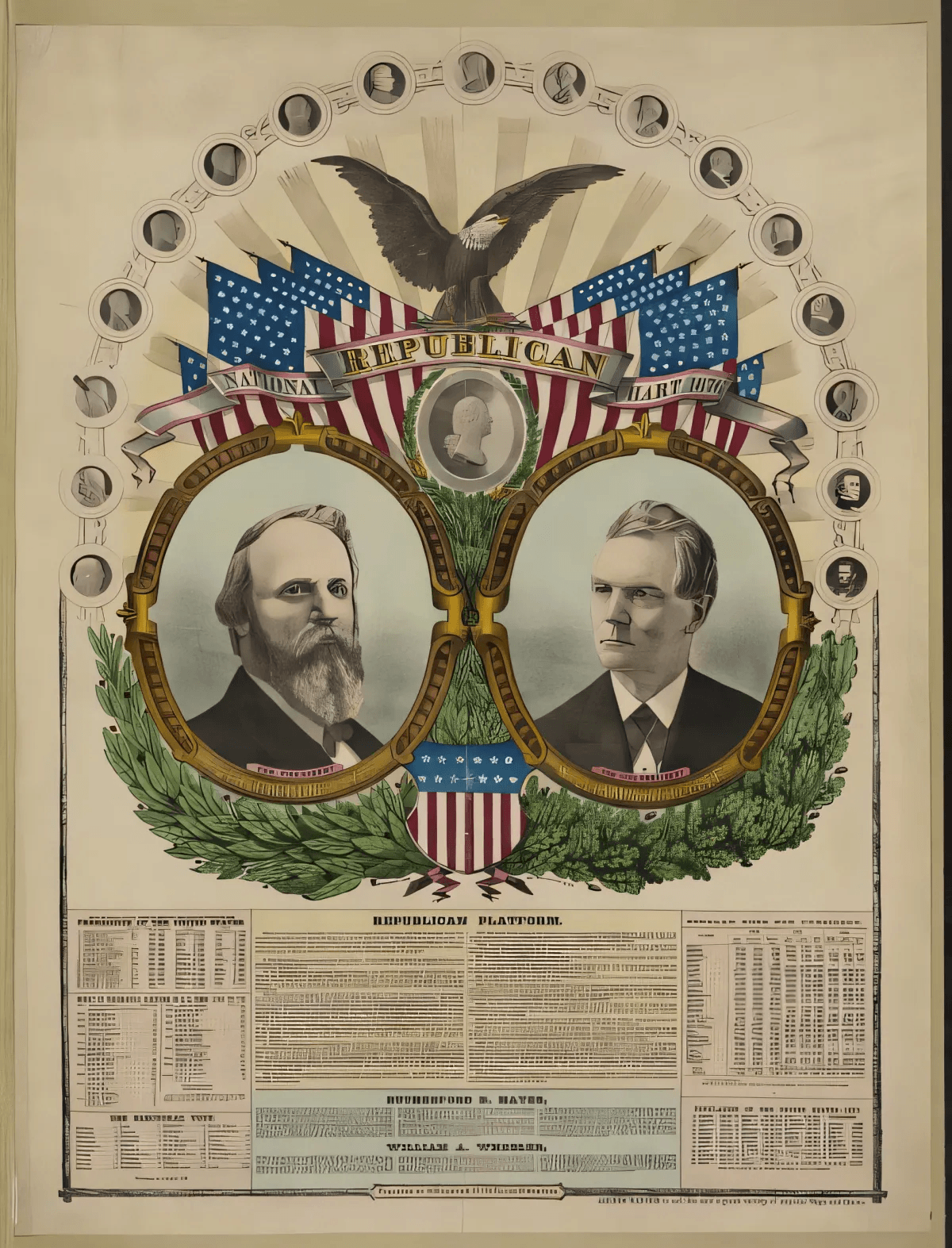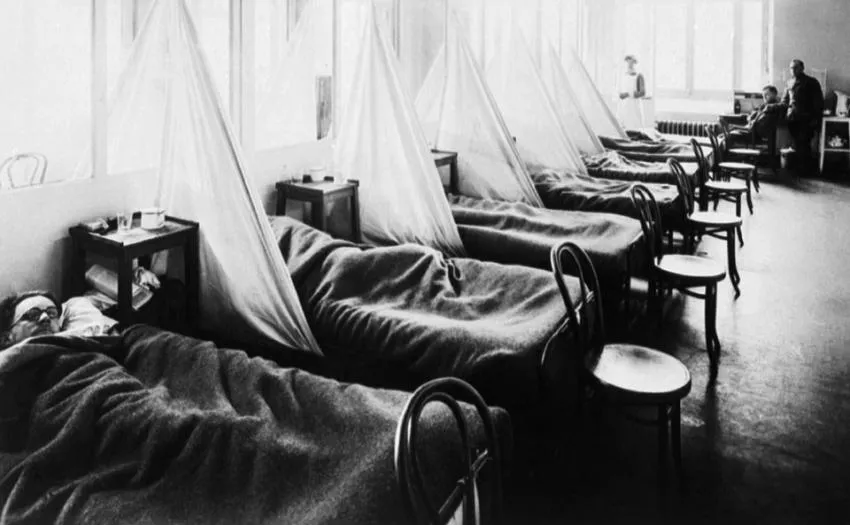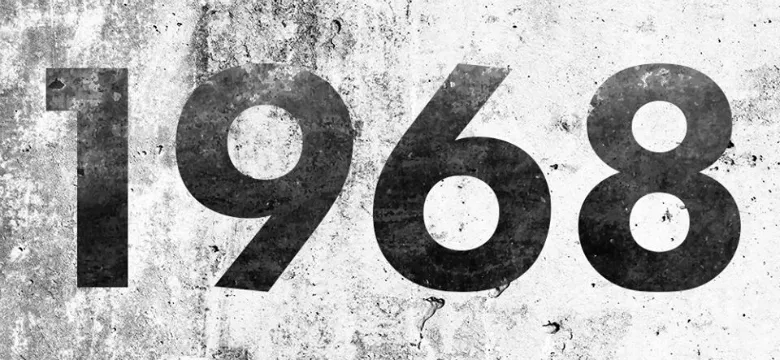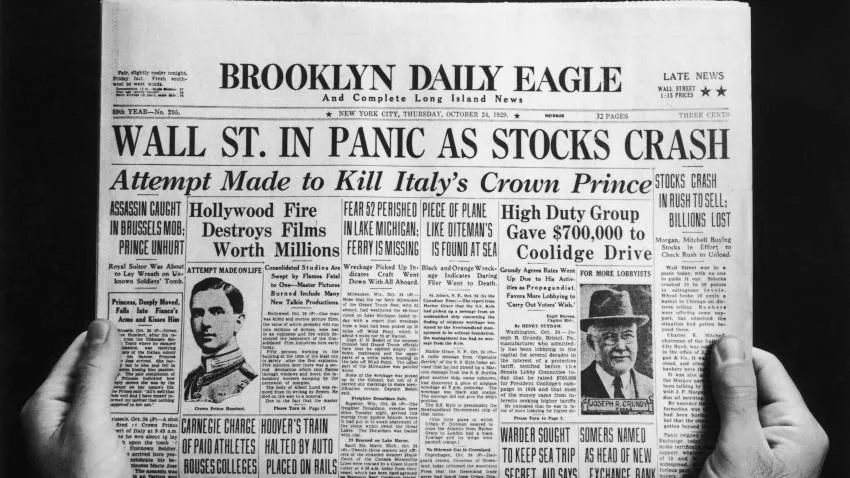America's Political Review Of The Year 2020

The elections in 2020 and in the years leading to this moment have provided many parallels to history. Finding them can be both obvious and hidden. While we wait for the final numbers to come in, it's looking to be a turnout for the record books.
The record of participation in a presidential election is over a century old. The election of 1876, with Ruthford B. Hays against Samuel Tilden, had an 80% voter turnout. Comparing that to the 2000 election where there was 60% of the electorate who cast their ballots.
While we are still waiting for that final number to come in; it's been reported that almost 1/3 of the population has or had voted this year. The chances of meeting or exceeding 1876, or 2000 is probable.
Donald Trump will be making history in his own way. He is the first person to lose the popular vote in two presidential elections. He is also the third republican to be followed by a democrat after only one term. Going back to the election of 1932, Herbert Hoover lost his one term as president when he lost to Franklin Delano Roosevelt.
George H.W. Bush was defeated in 1992 when Bill Clinton was won the White House. In all other republican presidential elections since 1952, Eisenhower, Nixon, Reagan, and Bush the younger have all served two consecutive terms. One caveat in Nixon's case is that while he won re-election in 1972; the events of Watergate caused his resignation in 1974.
1918 Repeating Itself In 2020 Elections

As for the year 2020 itself, in a way, it is a mix of three pivotal years from American history. The first year 1918, was the year of the Spanish Flu. The H1N1 virus that allegedly started in Kansas; swept the country and the world in the last months of the first World War.
Like today the Wilson administration was all but mute in response to the climbing death toll. This was in part due to the war, as Wilson wanted to keep America's focus on the conflict. Even though the virus began at an army camp; and even though troops sick or carrying the virus are being shipped across the Atlantic, Wilson helped contribute to the spread.
Wilson himself would end up catching the flu and had a difficult recovery afterward. It is suspected that the stroke he would later have after the end of the war was related to the flu. In the end, the Spanish Flu would kill more people in 24 weeks than the AIDS virus would kill in 24 years.
Now we have Covid-19, a different virus from the flu but does have some similarities in its symptoms. It didn't start in the United States, however, the effect on the country has become a public health issue and a political issue.
The debate of Covid-19 is far from over. But one thing that is certainly true, this virus will change the way we live, work, and relate to each other. It's up to us to choose how we handle it.
1968 Political Issues Repeating In 2020 Elections

The second-year that 2020 is a mix of is 1968. Years ago in a high school history class, a student (myself) would call the year 1968 "the year everything went wrong." Since then it's apparent that 2020 will give it a run for its money. Also an election year, the country is as divided as ever.
The year has many events, tragedies, and movements just like this year. In April, the Rev. Martin Luther King Jr. is assassinated in Memphis, Tennessee. The speech he gives the night before "I've been to the mountaintop," has elements of what was to come in 2020. His warnings of threats and troubling times feel as if he has seen ahead into the future.
This year was full of violence in terrorism, extreme partisanship, shootings, and protests. In June, Robert F. Kennedy would be killed after the California Democratic primary. He like King represented a change in America that wouldn't be realized for another 40 years.
Lastly, Richard Nixon winning the presidency solidified the kind of political tactics that Donald Trump and other republicans use today. The term "law and order" and the republican conversion of former Dixiecrats began the control over the south.
Using this as an excuse to reintroduce laws designed to undermine the Civil Rights Act of 1964. These laws will lead to decades worth of election discrimination and gerrymandering to undermine the black vote.
Also, the still unsettled issue of race in America was as prevalent then, as it is today. The murders of unarmed black men and women have become a source of social unrest that is coming to a boiling point. The murder of Brianna Taylor, Ahmad Aubry, and George Floyd ignited a flash of anger and protest across the country that hasn't been seen since 1968.
As more unarmed blacks were shot with some living like Jacob Blake and others who died, the cry for justice became louder and louder. Direct defiance to the "law and order" platform that Trump and republicans had been using for years. Suddenly, the majority of Americans supported not only racial equality but economic equality. New leaders emerging with messages of equality reminiscent of Civil Rights leaders of the past.
In 2020, the loss of icons in politics, sports, civil rights, and others that help make up the American culture has been polarizing. Kobe Bryant, John Lewis, Ruth Bader Ginsberg, Chadwick Boseman, Rev. C.T. Vivian, and Joseph Lowery all having impacts on the country that made many reflect on the state of America.
The impact in particular of John Lewis and Ruth Bader Ginsberg triggered a sense of duty in speaking to the injustice of others. Suddenly getting into "good trouble" became important in supporting each other in issues that have never been truly dealt with.
1929 Political Complications Repeating In 2020 Elections

The third and last year that 2020 resembles is 1929. The month of October and 1929 will always represent the dark moment when the stock market crashed beginning the Great Depression and leading to the defeat of Herbert Hoover in 1932.
One difference between the two is the obvious one: the cause. In 2020, the problems with the stock market and economy begin with the spreading of Covid-19 and its impact on small businesses. The stoppage of work and the closures of these businesses resulted in the loss of millions of jobs.
With no one working and no one spending the result is what we all are dealing with today. The question of whether to open everything and get back to normal versus following the advice of the doctors and research became a political issue instead of a public health one. It is still not clear which way America will fall under.
In 1929, the cause was a bit more complicated. However, let's make it as simple as possible. Lending was a big deal in the years of World War I and the years immediately afterward. War is an expensive one, and countries like Great Britain, France, and Germany all spent their treasuries in the continuing conflict.
Over the next four years, America would be the main lender to these countries. Germany in particular relied on the strength of the American market during its rebuilding after the war. On the home front, the population began to migrate from the rural areas to more industrialized cities.
This resulted in agriculture taking a hit in overproduction impacting American farmers. Investors began to sell their shares in different companies, and banks essentially recalling their money back. As a result, those companies and banks were unable to pay because they had taken the funds invested in them and used it to extend credit to farmers, and other people looking to capitalize on the "roaring 20s".
These Americans were unable to pay these back causing a massive economic crisis. The countries that took loans, or depended on the strength of the American market began to suffer in their countries in the same way.
Each of them has different levels of severity. Germany is the worst of all. These dominoes would have an impact on the country itself resulting in the rise of Adolph Hitler in the 1930s.
Where these two years meet is in the aspect of government response. Herbert Hoover, while being a successful businessman did not act when the crash occurred. He was a man of his time; who had lived through other crashes in American history and assumed it would recover on its own like the others.
Where he went wrong was how the market itself was beyond a point where it could recover on its own. As more Americans lost their jobs, and their homes it became clear to the voting population that Hoover wasn't able to do what needed to be done. This would open the path for Franklin Roosevelt when he runs in 1932 ultimately winning and then going on to make the moves that Hoover would not.
Donald Trump's response to the pandemic and his misleading perception of the severity of the virus; did more damage to the economy than the virus itself. By ignoring the surging and then playing down that it was no more than that of the seasonal flu, undermined the sayings of medical experts.
This led to losing essential time in controlling the spread that would impact the workers of so many companies. As people got sick and unable to work, it dropped the availability of staffing in these small businesses. These businesses were forced to either adjust according to staffing, close altogether, or find creative ways to work around the virus.
His administration's action on lending to those small businesses was botched when it was revealed that big box companies received funds instead of the small businesses as intended. His promises of rounding corners and the triumph over the virus all being contradicted by the increasing death toll and active cases led in part to where we are today.
While we at this moment do not know the official winner of the 2020 election, what we do know is that in the coming years it will be studied by historians, economists, and political scientists alike. These three crucial years 1918, 1968, and 1929 all elements of 2020 in a way that will make it a year for the ages.
Opinions and Perspectives
The social unrest comparisons between 1968 and 2020 are particularly relevant
Interesting how economic crises seem to follow similar patterns throughout history
The article makes some good points but oversimplifies complex historical events
I found the parallel between Wilson's and Trump's pandemic responses particularly striking
I wonder how future historians will view 2020 compared to these other pivotal years
The voter turnout statistics are fascinating but we need more context about voting rights in different eras
The point about Herbert Hoover's response versus FDR's is quite relevant to modern politics
I think we're still too close to 2020 to make these kinds of historical comparisons effectively
The pandemic response comparison between Wilson and Trump is particularly enlightening
Really insightful analysis of how these different historical moments connect to 2020
I'm particularly interested in the economic aspects compared to 1929. The government response was so different this time
We shouldn't oversimplify these historical comparisons though. Each era had its own unique challenges
The comparison to 1968 really hits home for me. I lived through that year and saw many similar patterns in 2020
This analysis seems a bit too focused on drawing parallels where they might not really exist
I find it remarkable how each of these historical parallels shows both similarities and stark differences
The part about Nixon's political tactics and their modern evolution really caught my attention
Wouldn't it be more accurate to compare the 2008 financial crisis to 1929 than 2020?
I appreciate how the article connects these different historical moments. Really helps put things in perspective
The voter turnout comparison is interesting but we really need to consider population size differences
My grandparents lived through the Great Depression and I can tell you their stories were nothing like what we experienced in 2020
The article makes some good points about economic parallels, but I think the causes were fundamentally different than in 1929
I think comparing 2020 to 1968 is a bit of a stretch. The social issues were different, even if there are some surface similarities
Looking at these historical comparisons makes me feel both better and worse about our current situation
The parallel between Wilson and Trump's pandemic responses is interesting, but we should remember the vastly different communication technologies available
I remember studying the 1876 election in college. The voter turnout was impressive but let's not forget it was before women had the right to vote
Anyone else notice how the article didn't mention the role of social media in spreading misinformation? That's a huge difference from all these historical examples
What stands out to me most is how the economic impacts of 2020 differed from 1929. This was more of an artificial pause rather than a structural collapse
The comparison between 1968 and 2020 really resonates with me. Both years marked by significant social unrest and political division
Actually, I think the article understates how different 2020 was from 1918. We had so much better medical technology and understanding this time around
I never realized George H.W. Bush was only the third Republican to be followed by a Democrat after one term. That's quite the statistic
We can learn so much from these historical parallels. I'm especially struck by the similarities between Wilson's handling of the Spanish Flu and our recent pandemic response
The voter turnout comparison to 1876 really caught my attention. I had no idea participation was that high back then
Interesting article but I disagree about Trump's response being worse than the virus itself. The economic impact was inevitable regardless of leadership
I find it fascinating how history seems to repeat itself. The parallels between 1918 and 2020 are particularly striking
